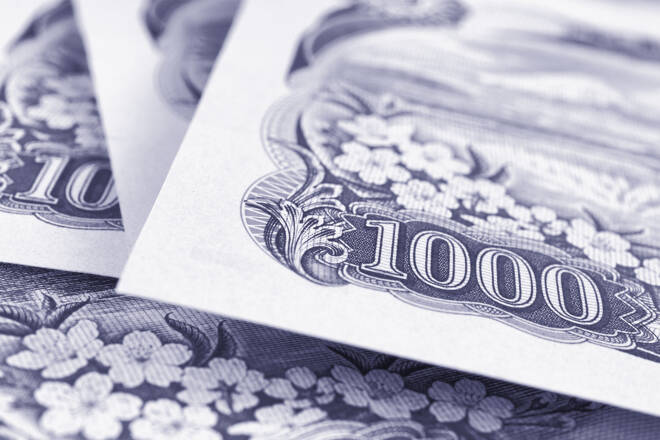Advertisement
Advertisement
USD/JPY Fundamental Daily Forecast – Weaker as Safe-Haven Buying Drives Down Treasury Yields
By:
Lower yields will tighten the spread between U.S. Government bonds and Japanese Government bonds, making the Japanese Yen a more attractive asset.
The Dollar/Yen is easing on Monday as protests in China against the government’s anti-COVID policies are encouraging investors to shun riskier assets. The event is driving global investors into safe-haven assets like U.S. Treasurys and the Japanese Yen.
According to Reuters, the protests have flared across China and spread to several cities in the wake of an apartment fire that killed 10 people in Urumqi in the country’s far west. Hundreds of demonstrators and police clashed in Shanghai on Sunday night.
At 07:03 GMT, the USD/JPY is trading 138.040, down 1.110 or -0.80%. On Friday, the Invesco CurrencyShares Japanese Yen Trust ETF (FXY) settled at $67.06, up $0.11 or +0.16%.
China’s stringent COVID restrictions have taken a heavy toll on its economy, and authorities have implemented various measures to revive growth. On Friday, the People’s Bank of China (PBOC), the nation’s central bank, said it would cut the reserve requirement ratio (RRR) for banks by 25 basis points (bps), effective from Dec. 5.
Pressured by Falling Treasury Yields
Safe-haven buying tied to the latest developments in China, combined with hopes that the Federal Reserve would soon slow its pace of rate hikes have been putting pressure on the Dollar/Yen lately. This view was supported last week following the release of the Fed’s November meeting minutes.
A “substantial majority” of policymakers at the Federal Reserve’s meeting early this month agreed it would “likely soon be appropriate” to slow the pace of interest rate hikes as debate broadened over the implications of the U.S. central bank’s rapid tightening of monetary policy, according to the minutes from the session.
Looking Ahead…
The protests in China are creating uncertainty because investors aren’t sure how China is going to respond to the unrest in the country. Leaders may even implement stronger restrictions to squash the demonstrations and the spread of COVID. This would put more pressure on the local economy, which would then spread to the global economy.
The Dollar/Yen is likely to feel more pressure if aggressive moves by China lead to an escalation in the shedding of riskier assets since this would drive investors into the safety of U.S. Treasury bonds, lowering yields.
Lower yields will tighten the spread between U.S. Government bonds and Japanese Government bonds, making the Japanese Yen a more attractive asset.
As far as U.S. Federal Reserve policy is concerned, the markets are expecting a less-hawkish Fed, which has helped the Japanese Yen gain some upside momentum. The current price action suggests traders are looking for the Fed to downshift to a 50-basis-point rate hike starting in December and perhaps going to a pause next year. That is likely to limit the upside in U.S. Treasury yields, making the Japanese Yen an attractive asset.
For a look at all of today’s economic events, check out our economic calendar.
About the Author
James Hyerczykauthor
James Hyerczyk is a U.S. based seasoned technical analyst and educator with over 40 years of experience in market analysis and trading, specializing in chart patterns and price movement. He is the author of two books on technical analysis and has a background in both futures and stock markets.
Advertisement
